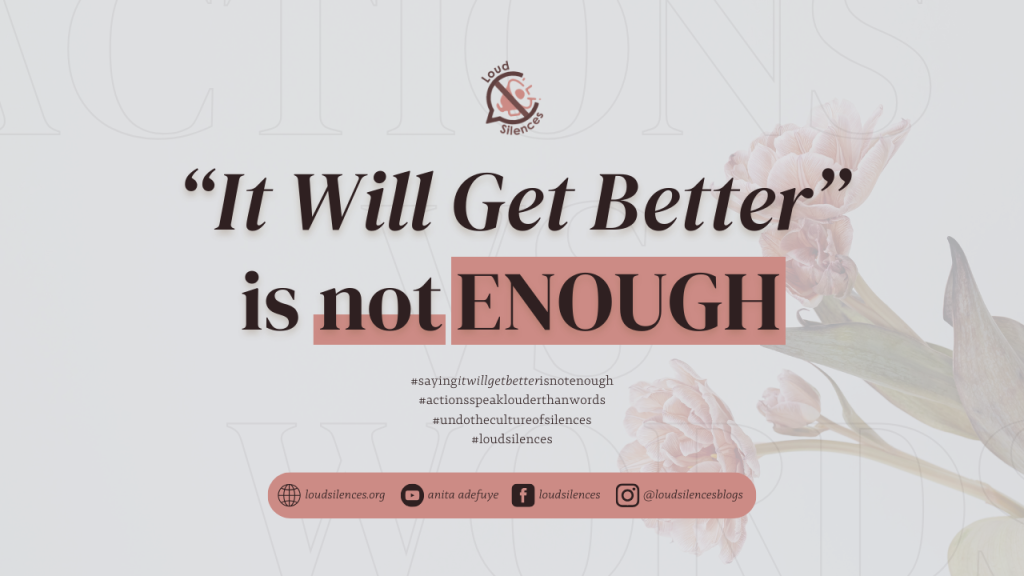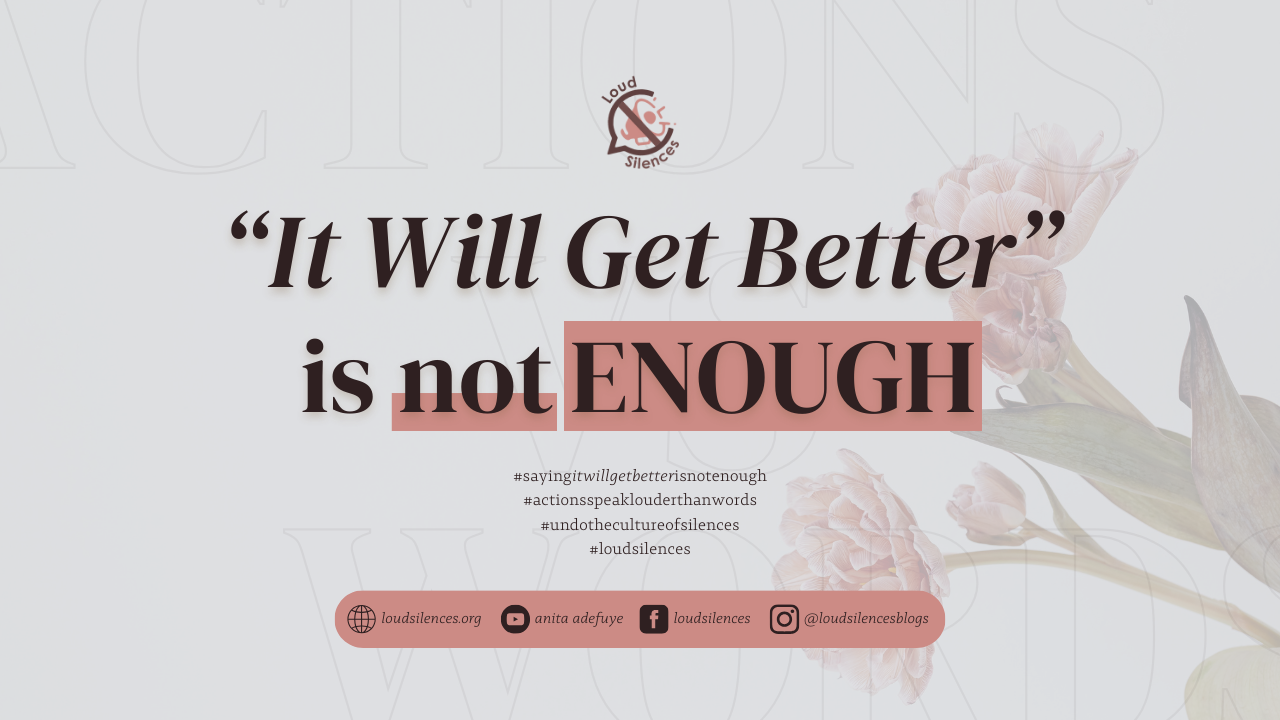I hate being vulnerable. And the times that I have been vulnerable to people, out of many of the words they have said to me, the one phrase I struggled to reconcile with was, “It will get better.”
Of course, I understand they have no ill intention for saying that, but even though I would nod my head and say thank you, I never felt better. Until one person, whom I hold very dear to my heart and God bless her, started to put actions to her words.
The go-to phrase for many people, including me, to say to other people going through a rough time—whatever that rough may look like—is “Don’t worry. It will get better.” While that may be true in many senses and we prophesy that for them because yes, it will get better, for many simply saying “It will get better” is not enough.
What’s wrong with “It will get better?”
You might be wondering, “what is wrong with saying that phrase?” Trust me, there is absolutely nothing wrong with saying “It will get better.” In fact, there are some that would rather be reassured than for you to do anything else.
However, in a wider perspective, explaining to them what their outcome will be or get better invalidates their current thoughts and feelings. It’s almost feels like an insult in that they wonder, “if things will get better, why isn’t it getting better?”

Moreover, it is one thing to be supportive verbally and not follow-up with actions. Many people going through a hard time, not only need reassurance, but also guided help along the way.
Guided help comes in many ways and forms. You will have to figure out how your person wants and needs to be helped.
Your actions will always speak volumes louder than your words ever will.
G. Swiss
After saying, “It will get better.”
Here are five ways you can put actions to the words of their situation getting better. Everyone has different struggles, so these are generals forms of help you can render to them.
1. Keep checking on them
This can be done either on phone or in-person. It extends the thought that you care about them and their well-being. Then their journey to “better-land” isn’t as lonely as they might have thought it might be.
2. Find solutions
Easier said than done, right? Depending on what they might be going through, different problems calls for different solutions. This may require you doing research on what might help them.

3. Provide food for them
This might not seem like an extravagant expression to some, but to others it is, because making food or even eating food might be the last things on their minds.
4. Give encouraging words
Words like, “I am proud of you”, “You are doing amazing”, or “You have made it this far, which shows how relentless you are.” Words like these point to how they are still trudging on amidst their struggles. They acknowledge their awesomeness that is them.
I don’t believe what you say; I believe what you do.
Unknown
5. Pray for them
Prayers to our God Almighty goes a long way, and it most definitely works. Because of His unwavering love for us, God hears and answers when we cry to Him.
Takeaways
It is so easier to say, “it will get better” because it clearly shows that you care about them. But many are very much tired of hearing words and phrases along those lines.
Moreover, it really only speaks to your intention not your actions. So, aside from giving reassurances, because once again we do believe it will get better, you actions should speak louder than your words.

Can you think of a better way to help a person who has experienced gender-based violence find their voice better than showing them someone who came out stronger on the other side? No? Me neither. LOL
Yes, I have been through SOME of the things we talk about here and dared to share my story of sexual abuse, low mental health, suicide, but also how I overcame.
My book, Reve-Healed – A true story of pain, healing, and hope, is available for purchase. Get yourself a copy today and gift someone as a message of hope.

Leave a Reply